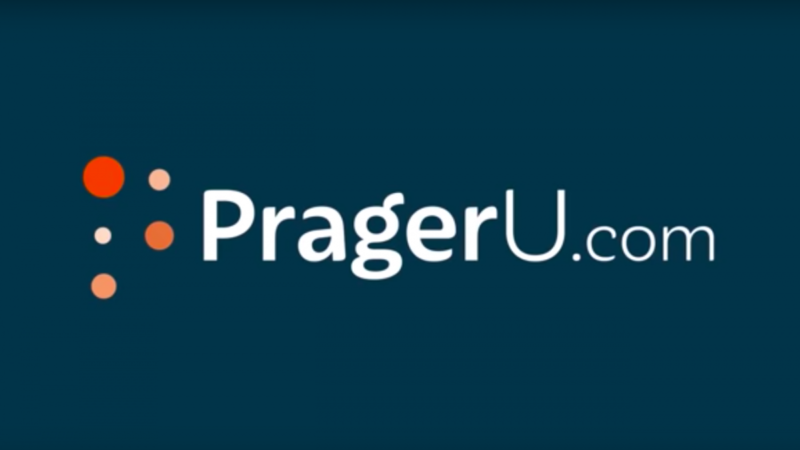PragerU's Attempt To Violate YouTube's 1st Amendment Rights Shot Down By 9th Circuit Court of Appeals
The conservative nonprofit Prager University alleged the company should not be allowed to place its videos on "Restricted Mode."

The Ninth Circuit Court of Appeals on Wednesday affirmed that YouTube, a Google subsidiary, is a private platform and thus not subject to the First Amendment. In making that determination, the Court also rejected a plea from a conservative content maker that sued YouTube in hopes that the courts would force it to behave like a public utility.
Put another way, had the Ninth Circuit ruled in favor of Prager University—also known as PragerU—and against YouTube, it would have violated YouTube's First Amendment rights.
Headed by conservative radio host Dennis Prager, PragerU alleged in its suit against YouTube that the video hosting platform violated PragerU's right to free speech when it placed a portion of the nonprofit's clips on "Restricted Mode," an optional setting that approximately 1.5 percent of YouTube users select so as not to see content with mature themes. (It's worth noting that PragerU is not an actual public or private university, but rather "an online video resource promoting knowledge and clarity on life's biggest and most interesting topics.")
"PragerU runs headfirst into two insurmountable barriers—the First Amendment and Supreme Court precedent," wrote Circuit Judge M. Margaret McKeown. "Just last year, the Court held that 'merely hosting speech by others is not a traditional, exclusive public function and does not alone transform private entities into state actors subject to First Amendment constraints,'" she wrote, referencing the recent decision in Manhattan Cmty. Access Corp. v. Halleck.
Indeed, the conservative nonprofit's lawsuit sought to radically alter the First Amendment, which constrains the government—not private actors like YouTube—from infringing on free speech rights. PragerU's suit rested on the claim that YouTube has become so ubiquitous that it is now a public utility owned by the people. The claim seems more at home among the rising democratic socialists often criticized by PragerU in its videos, and it's one that the Ninth Circuit fundamentally rejected.
"Such a rule would eviscerate the state action doctrine's distinction between government and private entities because 'all private property owners and private lessees who open their property for speech would be subject to First Amendment constraints,'" noted McKeown. "Importantly, private property does not 'lose its private character merely because the public is generally invited to use it for designated purposes.'"
PragerU's argument boils down to the following: YouTube performs a function of value to the public, so it is therefore a public utility bound by the same rules as any other government agency. But that argument would require, at minimum, for YouTube to hold a monopoly on internet video hosting. As that is not the case, PragerU was essentially asking YouTube to be treated like a government agency based on its largeness.
PragerU also put forth claims under the Lanham Act, contending that the company engaged in false advertising when it said, for instance, that "people should be able to speak freely, share opinions, foster open dialogue, and that creative freedom leads to new voices, formats and possibilities." Not so, said the Ninth Circuit, likening such declarations to non-actionable "puffery" that do not constitute binding commercial behavior.
"Google's products are not politically biased. We go to extraordinary lengths to build our products and enforce our policies in such a way that political leanings are not taken into account," Ivy Choi, a YouTube spokesperson, told Reason in September, following oral arguments.
In Prager's defense, videos that fall under Google's Restricted Mode are tagged with an algorithm and often evaluated again by a human reviewer, who inevitably comes to the table with his or her own intrinsic biases. For instance, restricting PragerU's "Are 1 in 5 Women Raped at College?" makes sense; tagging "The Ten Commandments: What You Should Know" does not. (Karan Bhatia, a former conservative operative and now Google's vice president for government affairs, said the video references mature themes, like murder.)
Even so, a private company's flawed review system does not constitute a free speech issue. What's more, a win for PragerU would have obligated YouTube to grant children access to "adult" content published by producers who have much larger portions of their videos restricted. Even the History Channel has a larger portion of its videos tagged in restricted mode than does PragerU:
As Sen. Cruz brings up Prager, take a look at our one-pager: pic.twitter.com/hqgR41yGi6
— Robert Winterton (@RobPWJ) July 16, 2019
At the heart of PragerU's lawsuit is a desire to compel YouTube and similar companies to treat his world view with kid gloves, something that Circuit Judge Jay Bybee alluded to in August.
"If your representations are correct, it seems deeply disturbing that they put your stuff in the restricted area," he said. "I'm not sure that creates a First Amendment issue."


Show Comments (107)